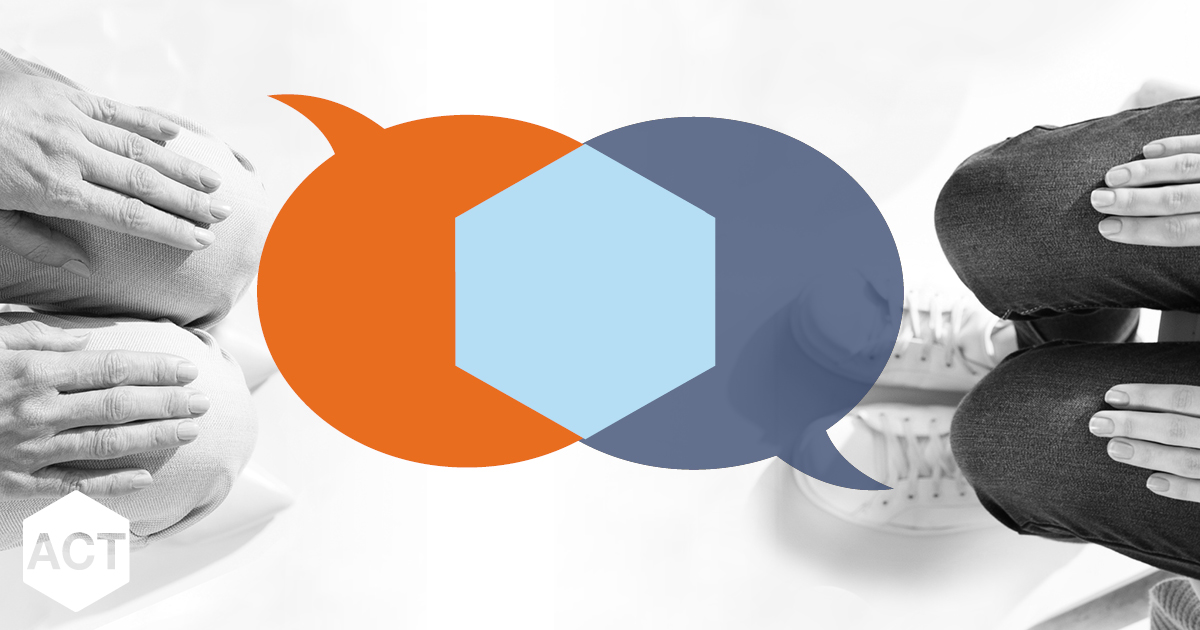Mastering the Clinical Conversation – Phoenix
About This Workshop
Exploring the role of language processes in the development and maintenance of psychological problems, this workshop will address a core question: How can clinicians alleviate the suffering caused by language and cognition through the use of language and cognition? We will propose innovative ways to enhance assessment and intervention using specific kinds of clinical conversations. We will demonstrate techniques for shaping behavior change and fostering meaning and motivation, using powerful experiential metaphors and perspective-taking shifts.
The training will include didactics, demonstrations, and skills development through role-plays focused on:
- Experiential work without reliance on protocols and standard exercises, in natural conversations with clients.
- Shaping your client’s ability to be in touch with and observe their own experiences, and to draw conclusions adapted to their personal life choices (e.g., how to evoke observation rather than using didactic psychoeducation).
- Using experiential metaphors and perspective-taking shifts to develop your client’s awareness.
- Developing life purpose and motivation through meaningful conversations grounded in behavioral principles.
Attendees must complete the course in full and attend all sessions in order to receive ANY continuing education credit. No partial credit will be given.
Prior to registering, please review speaker-planner conflict of interest disclosures and complete CE information.
Discounted guest room rate of $129/night available using the group code Z3R.
Program
Thursday, October 3
8:00 am to 8:30 am
- Registration (Not available for CE)
8:30 am to 10:15 am
- Overview of the contextual behavioral approach to clinical work
10:15 am to 10:30 am
- Morning Break (Not available for CE)
10:30 am to 12:30 pm
- Experiential therapeutic stance organized around openness, curiosity, and equality (didactic and practice)
12:30 pm to 2:00 pm
- Lunch Break (Not available for CE)
2:00 pm to 3:15 pm
- Connecting the therapeutic process to the client’s life (didactic, demonstration, and practice)
3:15 pm to 3:30 pm
- Afternoon Break (Not available for CE)
3:30 pm to 5:00 pm
- Developing the client’s awareness with experiential techniques (didactics and demonstrations)
Friday, October 4
8:00 am to 8:30 am
- Check-in (Not available for CE)
8:30 am to 10:15 am
- Developing the client’s awareness with experiential techniques (practice)
10:15am to 10:30 am
- Morning Break (Not available for CE)
10:30 am to 12:30 pm
- Codeveloping metaphors (didactics, demonstrations, and practice)
12:30 pm to 2:00 pm
- Lunch Break (Not available for CE)
2:00 pm to 3:15 pm
- Perspective-taking to develop awareness (didactics, demonstrations, and practice)
3:15 pm to 3:30 pm
- Afternoon Break (Not available for CE)
3:30 pm to 5:00 pm
- Developing life purpose and motivation through meaningful conversations
Learning Objectives
Participants will be able to:
- Describe and implement the components of the contextual behavioral therapeutic process.
- Demonstrate techniques connecting the therapeutic process to the client’s life.
- Describe the components of the experiential work on awareness.
- Implement the process and techniques of helping clients observe and describe psychological experiences.
- Implement process and techniques of helping clients track functional relationships among experiences.
- Describe the main processes involved in perspective-taking in experiential work.
- Implement perspective-taking techniques, increasing the client’s awareness.
- Describe the main processes involved in experiential metaphors.
- Demonstrate techniques to codevelop experiential metaphors with the client.
- Describe language processes involved in meaning and motivation.
- Demonstrate techniques to build meaning and motivation through natural conversations.
- Implement various experiential techniques through natural conversations.
Continuing Education
Please review complete CE and conflict-of-interest disclosure information prior to registering. This course is jointly sponsored by Praxis CET and Institute for Better Health (IBH) and is approved for 13 CE Hours by the following:
- APA – Psychologists
- ASWB – National Social Workers
- NBCC – National Counselors
- NY State – Counselors and Social Workers
- Other State Level Counselors, MFTs, and Social Workers
- WESPSB- Educators
- ACCME – Physicians
- ANCC – Nurses
Prerequisites
Audience
Recommended Reading
Villatte, M., Villatte, J.L., & Hayes S.C. (2016). Mastering the Clinical Conversation: Language as Intervention. New York: Guilford Press.
Wilson, K.G. & Dufresne, T. (2009). Mindfulness for Two. Oakland, CA: New Harbinger.
Torneke, N. (2017). Metaphor in Practice. Oakland, CA: New Harbinger.
References
Eswara-Murthy, V., Villatte, M., McHugh, L. (2017, June). Investigating the effect of Conditional vs Hierarchical Framing on Motivation. Paper presented at the 15th World Conference of ACBS, Sevilla, Spain.
Sierra, M.A., Ruiz, F.J., Florez, C.L., & Riano Hernandez, D. (2016). The role of common physical properties and augmental functions in metaphor effect. International Journal of Psychology and Psychological Therapy, 16(3), 265-279.
Villatte, M., Villatte, J. L., & Hayes, S. C. (2017). A reticulated and progressive strategy for developing clinical applications of RFT. The Psychological Record, 1-5.
Refund and Cancellation Policy
We understand, sometimes things come up!
Praxis will offer a full refund to registrants of both live and live-online trainings who cancel their registration up to 14 days before the course or workshop start date, minus an administrative processing fee of $30 for a 2-day workshop or online course, and a $50 fee for a 4-day workshop. If cancelled within 14 days, no refund will be issued, however, a credit for the same amount will be applied toward another learning product, which expires within 1 year. Please email us at events@praxiscet.zendesk.com to cancel a registration.

Available Discounts
- Groups of 3 or more professionals receive 20% off at checkout
- Register before August 22 for a $50 discount.
- Student registrations are not eligible for ANY discounts